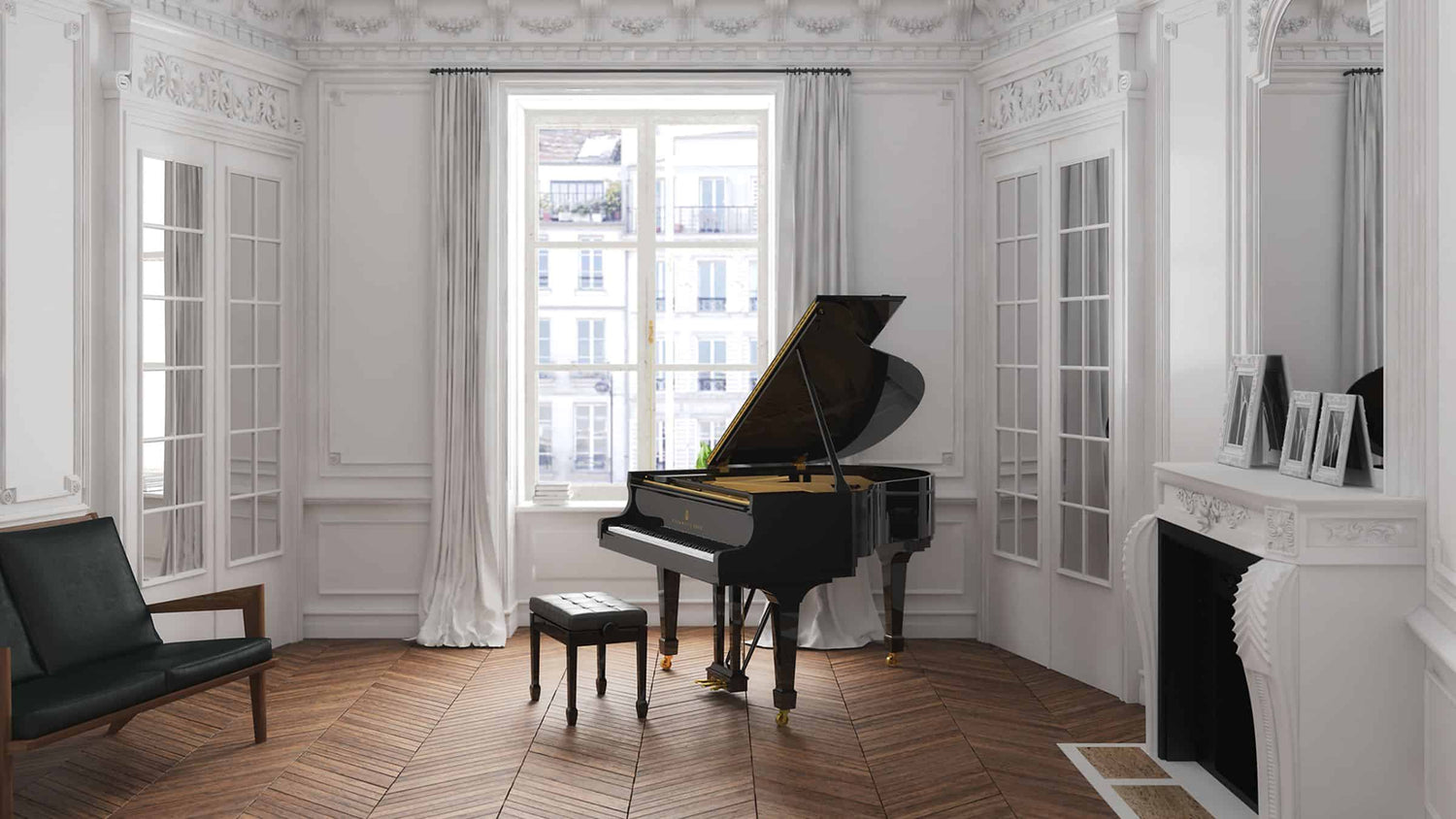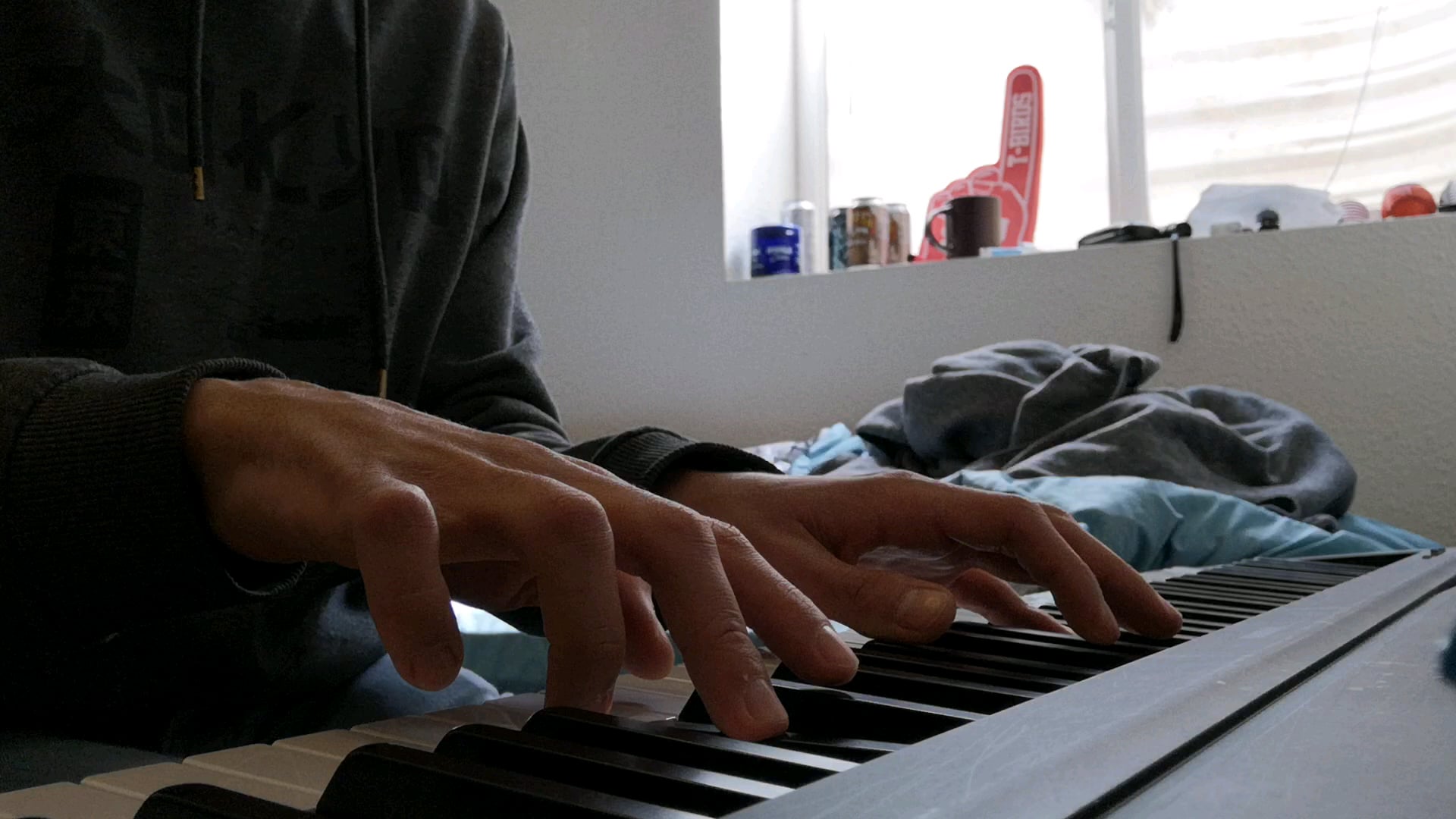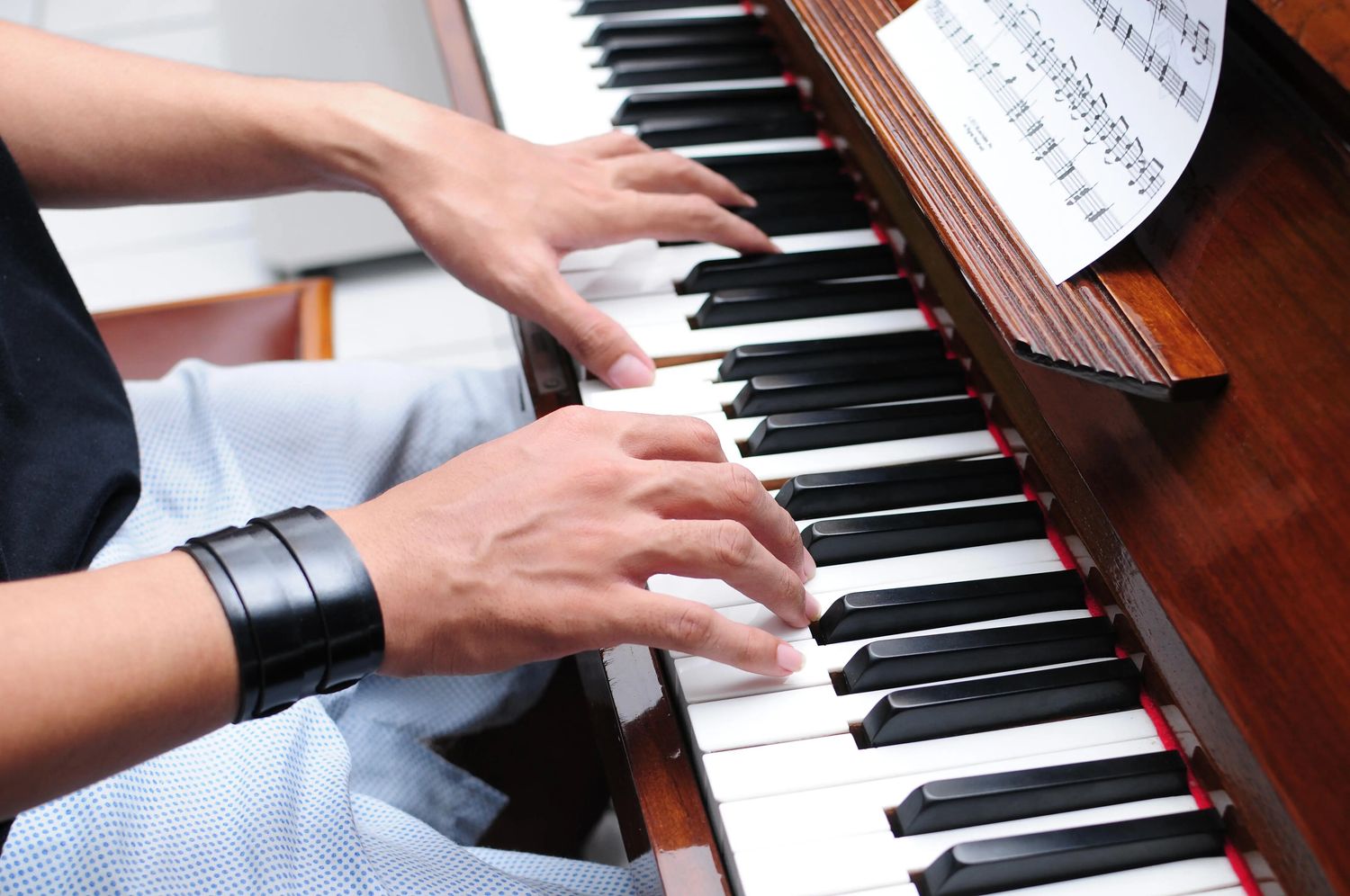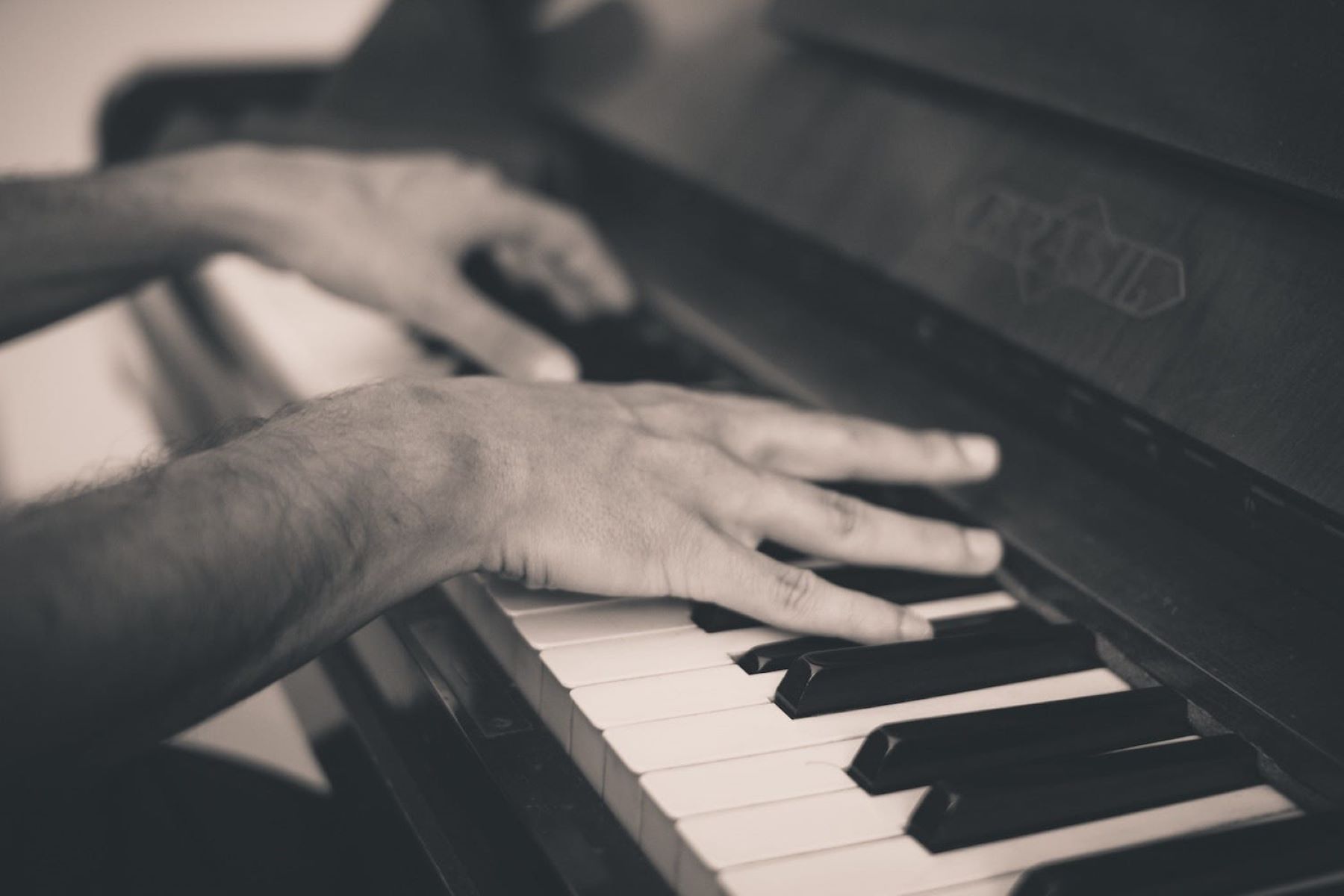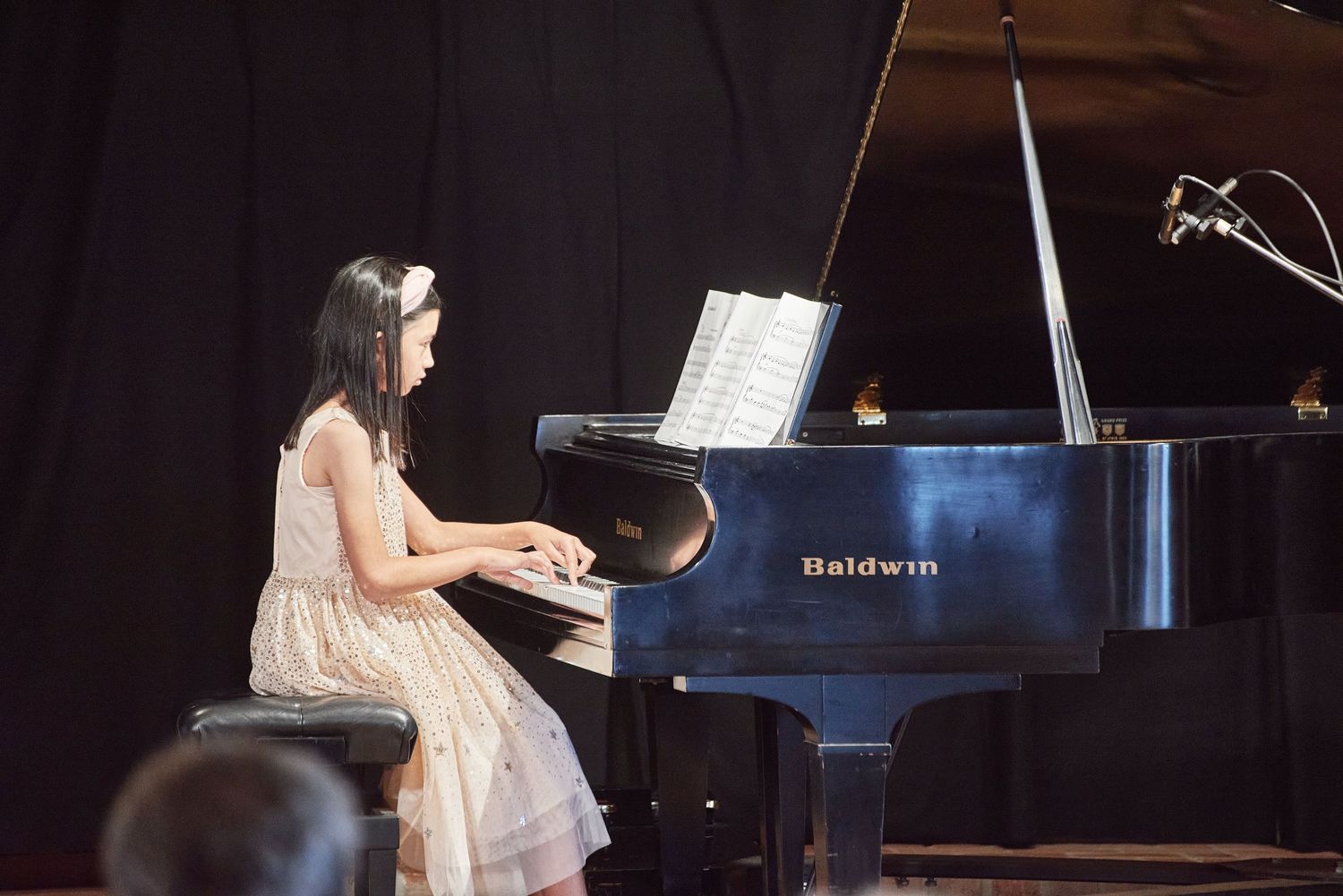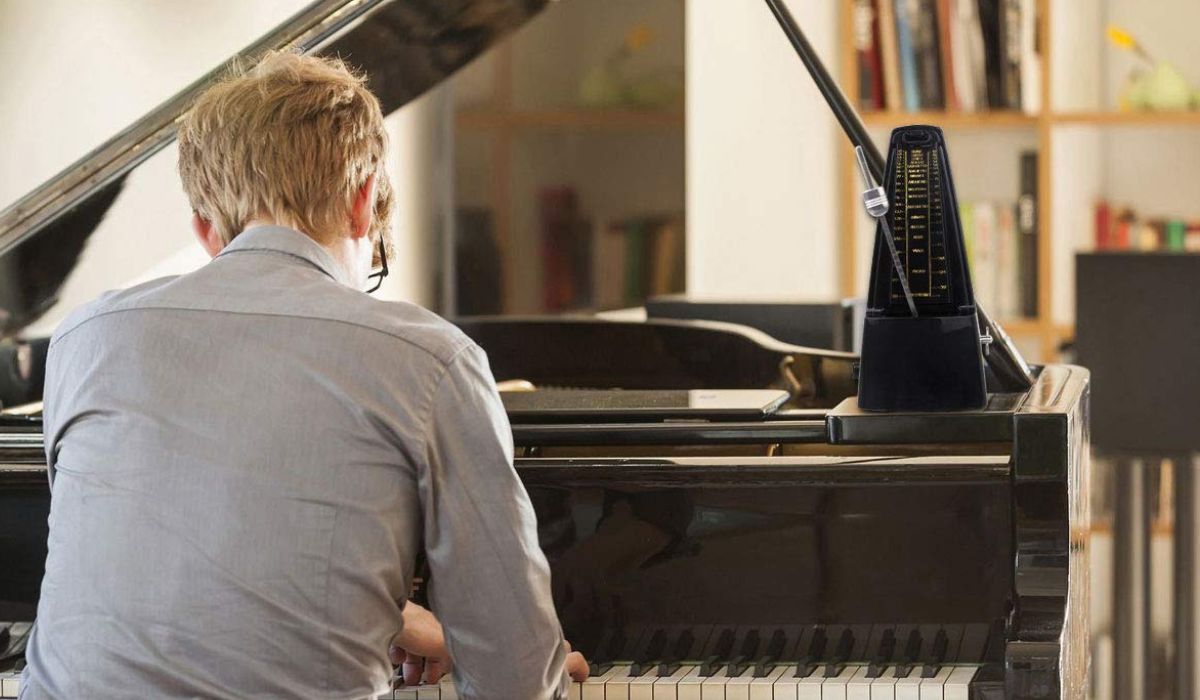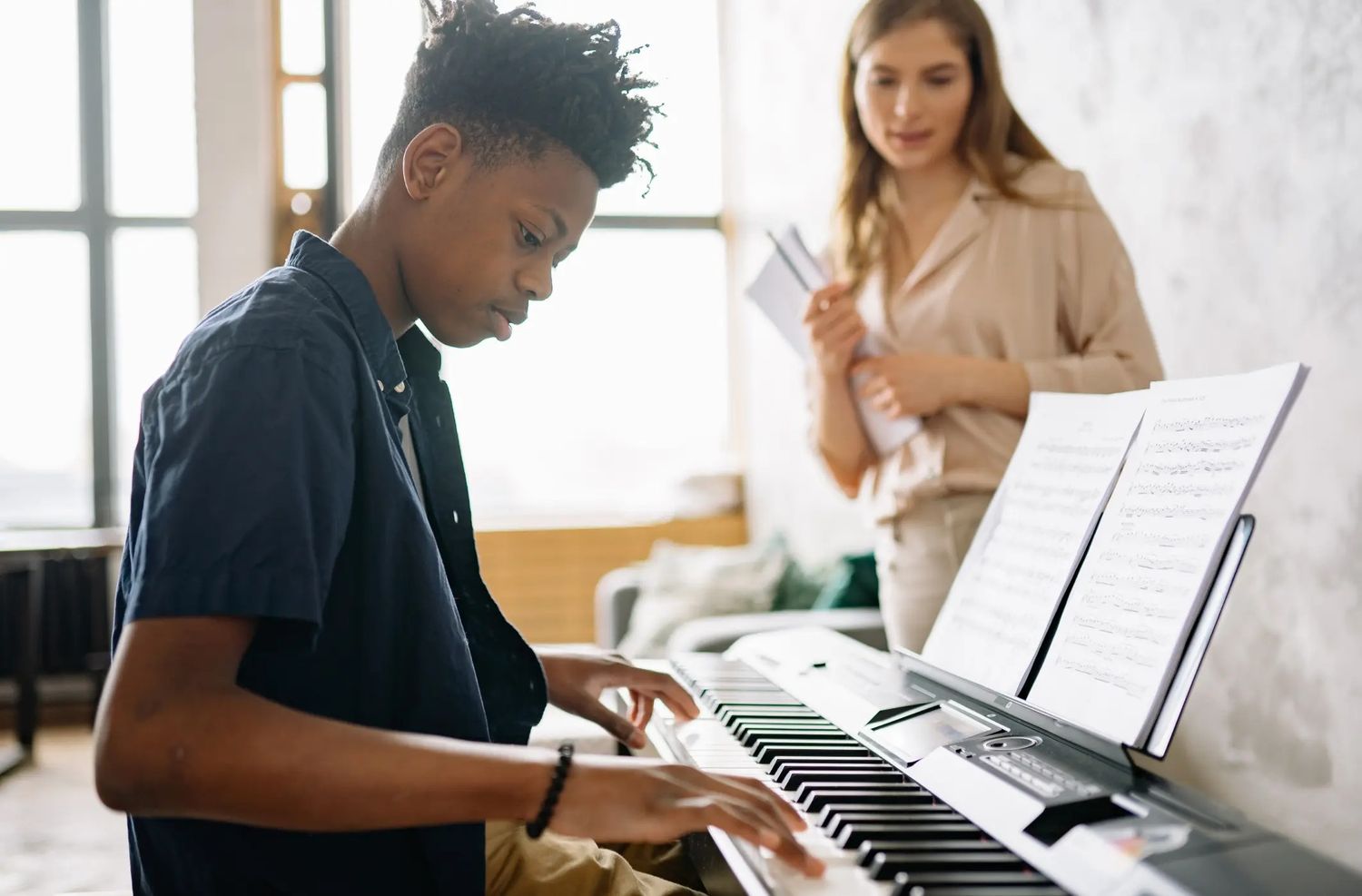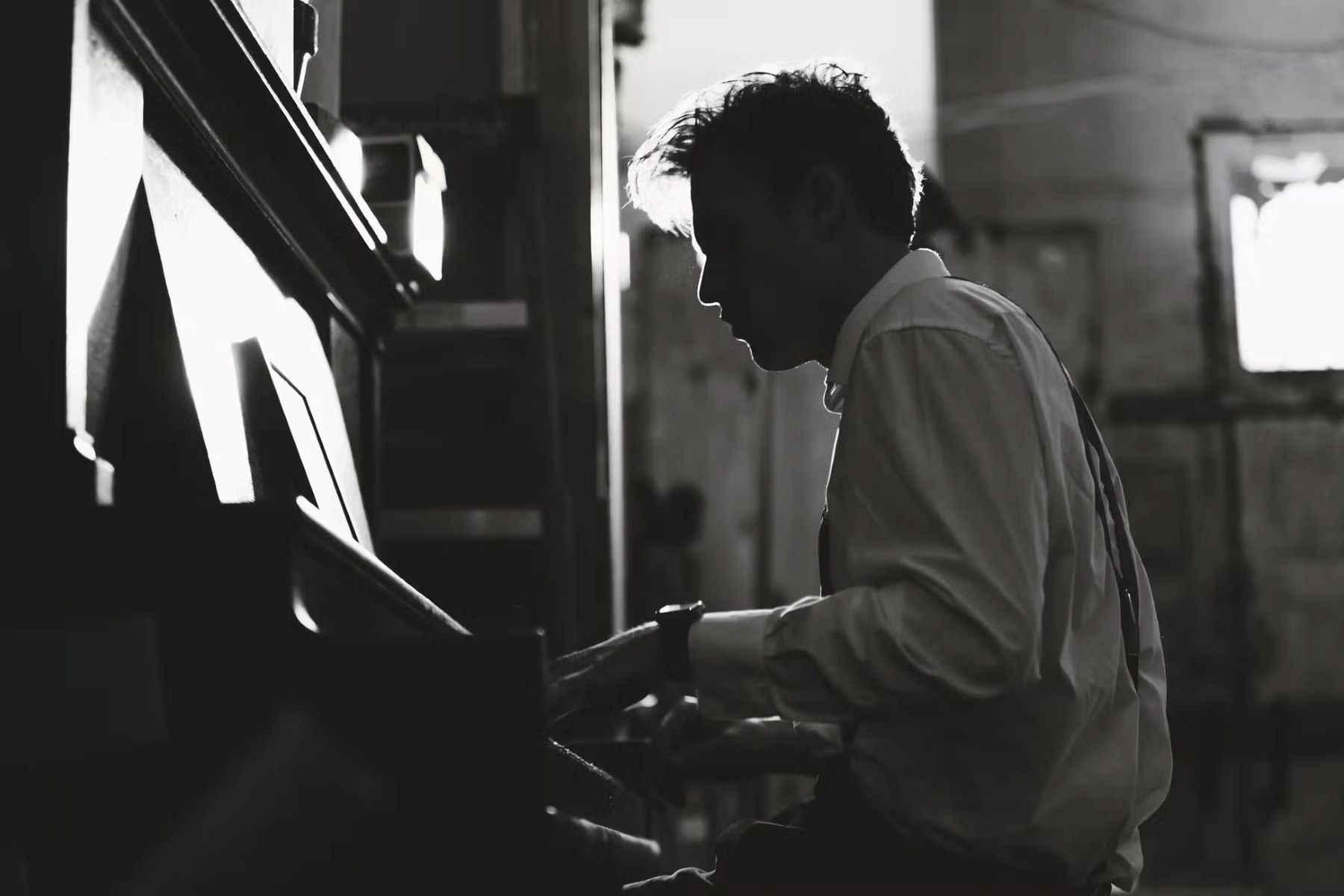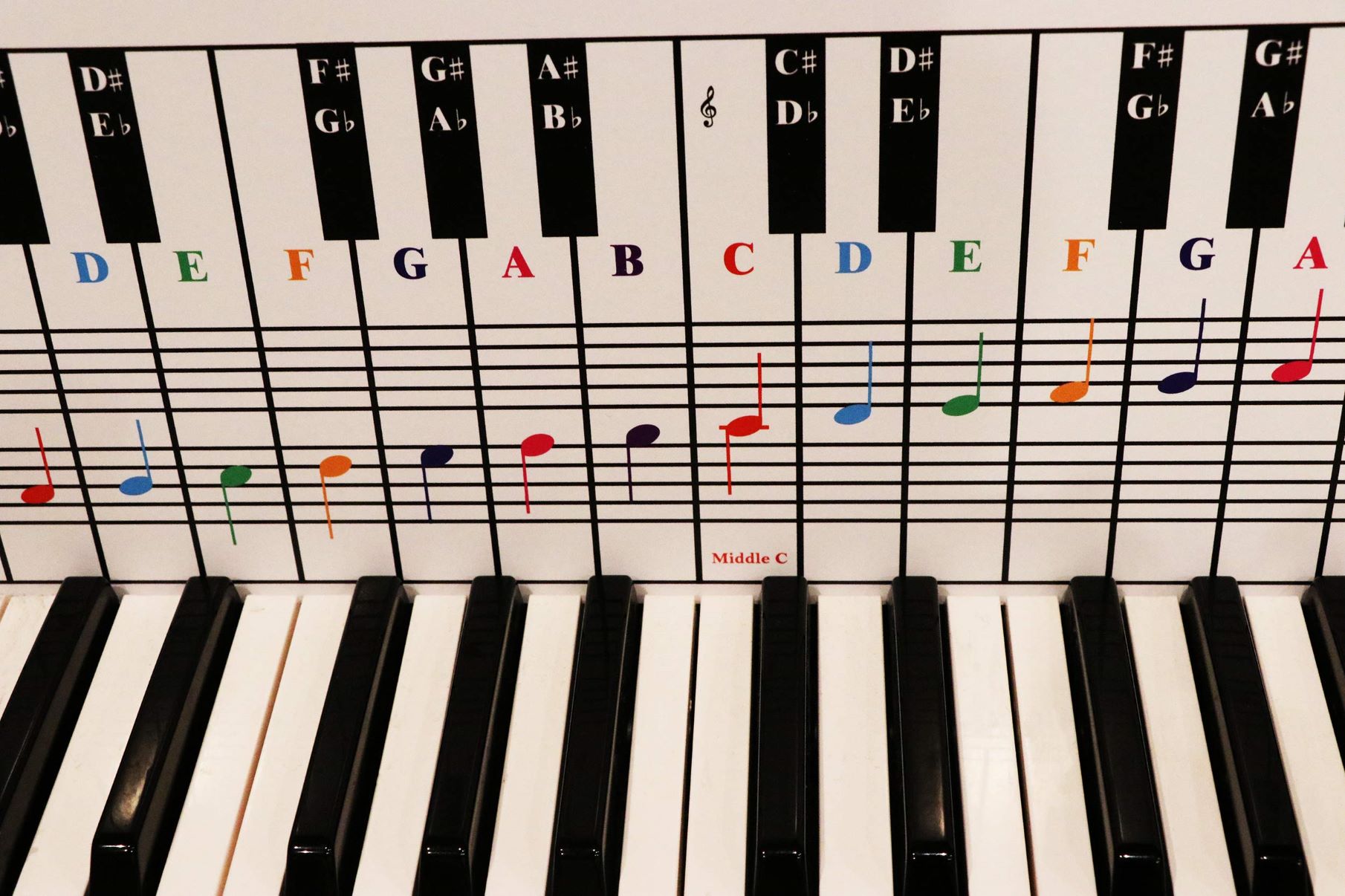Home>Instruments>Piano>How To Relearn The Piano
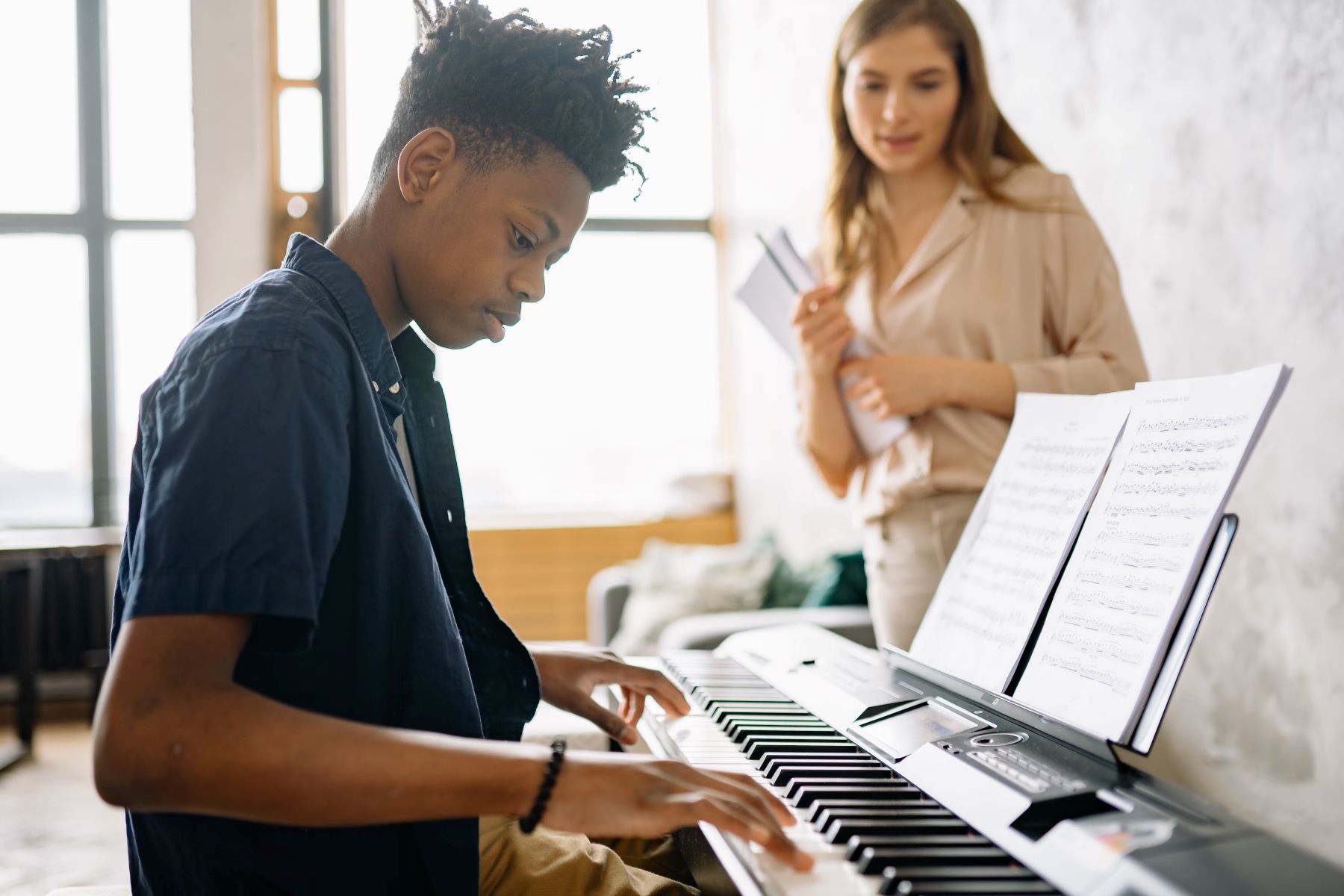

Piano
How To Relearn The Piano
Modified: February 10, 2024
Discover effective techniques to relearn the piano and improve your skills with our comprehensive guide. Unlock your potential and enjoy playing the piano again.
(Many of the links in this article redirect to a specific reviewed product. Your purchase of these products through affiliate links helps to generate commission for AudioLover.com, at no extra cost. Learn more)
Table of Contents
Introduction
Learning to play the piano is a fulfilling journey that offers a myriad of cognitive, emotional, and social benefits. Whether you're reigniting your passion for the instrument after a hiatus or seeking to enhance your existing skills, the process of relearning the piano can be both rewarding and challenging. This guide is designed to provide you with practical insights and effective strategies to help you embark on this musical endeavor with confidence and enthusiasm.
Relearning the piano offers a unique opportunity to rediscover the joy of creating beautiful melodies and expressing emotions through music. It allows you to build upon your existing knowledge while exploring new techniques and musical styles. By approaching this experience with an open mind and a positive attitude, you can cultivate a deeper connection with the instrument and unleash your creativity in meaningful ways.
Whether you're an adult revisiting the piano after years away or a seasoned player looking to refine your skills, the journey of relearning the piano is a personal and transformative process. It involves embracing the fundamentals, honing your technique, and expanding your repertoire to achieve a higher level of proficiency and artistry. Through dedication, perseverance, and a well-structured approach, you can navigate this musical odyssey with confidence and determination.
In the following sections, we'll delve into the essential steps and strategies for relearning the piano, encompassing self-assessment, goal setting, practice routines, technique refinement, repertoire expansion, and the importance of consistency and guidance. By embracing these principles and integrating them into your musical journey, you can reignite your passion for the piano and embark on a fulfilling and enriching experience. Let's embark on this harmonious adventure together, as we explore the art of relearning the piano and the transformative power of music.
Assess Your Current Skill Level
Before diving into the process of relearning the piano, it’s essential to conduct an honest assessment of your current skill level. This introspective evaluation serves as a valuable starting point, allowing you to gauge your strengths, identify areas for improvement, and set realistic goals for your musical journey.
Begin by revisiting fundamental concepts such as note reading, hand positioning, and basic scales to gauge your proficiency. Assess your familiarity with different musical styles, chord progressions, and rhythm patterns to gain a comprehensive understanding of your current abilities. Reflect on your past experiences with the piano, acknowledging the pieces or techniques that come naturally to you and those that present challenges.
As you assess your skill level, consider factors such as finger dexterity, hand independence, and overall comfort with the keyboard. Pay attention to your ability to interpret musical notation, play with proper dynamics, and maintain consistent tempo and rhythm. Additionally, evaluate your ear training skills and your capacity to recognize melodies, harmonies, and musical intervals.
If you find yourself struggling with certain aspects of piano playing, such as sight-reading complex pieces or executing intricate technical passages, it’s important to approach these challenges with patience and a growth mindset. Acknowledging areas that require improvement is the first step toward targeted practice and skill development.
Seeking feedback from a piano teacher, mentor, or fellow musicians can provide valuable insights into your strengths and areas for growth. Their constructive input can offer a fresh perspective on your playing and guide you in formulating a tailored approach to relearning the piano. Embrace this assessment phase as a constructive opportunity to gain clarity on your current abilities and lay the groundwork for your musical advancement.
By conducting a thorough assessment of your current skill level, you can embark on the journey of relearning the piano with a clear understanding of your starting point and a vision for the skills you aspire to cultivate. This self-awareness will inform your practice routines, repertoire selection, and overall approach to mastering the instrument, setting the stage for a purposeful and rewarding musical resurgence.
Set Realistic Goals
As you embark on the journey of relearning the piano, setting realistic and achievable goals is paramount to your success and motivation. Whether you’re aiming to regain proficiency in specific techniques, master a challenging piece, or explore new musical genres, establishing clear objectives provides a roadmap for your musical advancement.
Begin by identifying short-term and long-term goals that align with your aspirations and current skill level. Short-term goals may encompass refining hand coordination, improving sight-reading abilities, or mastering a particular scale or arpeggio. Long-term goals could involve learning complex compositions, performing in public, or achieving a certain level of technical proficiency.
It’s crucial to frame your goals in a manner that is both challenging and attainable. Striking this balance ensures that you remain engaged and motivated throughout the relearning process. Consider the specific techniques, musical concepts, or performance milestones you aim to accomplish, and break them down into manageable steps that can be pursued incrementally.
Additionally, consider the time frame in which you aim to achieve these goals. Setting deadlines, whether self-imposed or in collaboration with a piano teacher or mentor, instills a sense of accountability and structure to your practice regimen. This temporal framework can help you prioritize tasks, track your progress, and celebrate incremental achievements along the way.
Furthermore, it’s important to embrace flexibility in your goal-setting approach. As you reengage with the piano, you may discover new musical interests or encounter unexpected challenges. Remaining adaptable and open to adjusting your goals based on evolving priorities and experiences empowers you to navigate the relearning process with resilience and creativity.
By establishing realistic and well-defined goals, you lay the foundation for a purposeful and fulfilling piano journey. These goals serve as beacons of inspiration, guiding your practice sessions and shaping your musical evolution. Embrace the process of setting and pursuing your objectives with enthusiasm, knowing that each step brings you closer to realizing your full potential as a pianist.
Create a Practice Schedule
Consistent and structured practice is the cornerstone of progress when relearning the piano. Crafting a well-designed practice schedule not only optimizes your learning experience but also instills discipline and focus in your musical pursuits. By allocating dedicated time for practice and adhering to a thoughtfully constructed schedule, you can maximize the effectiveness of your efforts and cultivate a deeper connection with the instrument.
When creating a practice schedule, consider factors such as your daily commitments, energy levels, and optimal learning times. Aim to establish a routine that aligns with your lifestyle while allowing for regular, uninterrupted practice sessions. Whether you prefer to practice in the morning to kickstart your day with music or unwind with the piano in the evening, choose a schedule that resonates with your personal rhythm and preferences.
Divide your practice sessions into manageable segments, focusing on specific elements such as technical exercises, repertoire rehearsal, sight-reading, and ear training. Structuring your practice in this manner not only enhances efficiency but also ensures a balanced approach to skill development. For example, you might allocate one session to mastering scales and arpeggios, another to interpreting a new piece, and a third to refining dynamics and expression.
Integrate breaks into your practice schedule to prevent mental and physical fatigue. Short, purposeful pauses between practice segments allow for reflection, relaxation, and mental assimilation of the material covered. Additionally, consider incorporating activities that promote holistic musicianship, such as listening to diverse piano performances, studying music theory, or exploring historical contexts of musical compositions.
As you adhere to your practice schedule, remain attuned to your progress and adjust the plan as needed. If certain exercises or pieces require additional attention, be flexible in reallocating practice time to address areas that demand further refinement. Embrace the evolving nature of your musical journey and let your practice schedule serve as a dynamic framework that adapts to your growth as a pianist.
By committing to a well-crafted practice schedule, you infuse purpose and intention into your relearning process. Each practice session becomes an opportunity for growth, discovery, and self-expression, propelling you closer to your musical aspirations while nurturing a consistent and fulfilling piano practice routine.
Start with Basic Exercises
As you embark on the journey of relearning the piano, revisiting fundamental exercises forms the bedrock of your technical and musical development. Basic exercises serve as building blocks, honing essential skills such as finger agility, hand independence, and overall dexterity. By incorporating these foundational exercises into your practice routine, you lay a robust groundwork for mastering more complex musical repertoire and techniques.
Begin by focusing on finger exercises that promote strength, flexibility, and coordination. Scales, arpeggios, and chromatic exercises are invaluable tools for enhancing finger agility and developing a nuanced understanding of keyboard patterns. Dedicate time to practicing these exercises in various keys and rhythmic patterns, gradually expanding your comfort and proficiency across the keyboard.
Hand independence exercises are essential for cultivating coordination between the left and right hands. Embrace exercises that involve playing different rhythms or melodic patterns simultaneously with each hand, fostering a seamless and synchronized approach to piano playing. These exercises not only refine technical prowess but also nurture a heightened sense of musical expression and control.
Furthermore, explore exercises that focus on dynamics, touch, and articulation. Delve into variations of touch, from staccato to legato, and experiment with different levels of intensity and expression. By immersing yourself in exercises that emphasize nuanced playing techniques, you refine your capacity to convey emotions and musical nuances through the piano.
Engage in sight-reading exercises to sharpen your ability to interpret musical notation and play unfamiliar pieces with confidence. Gradually introduce progressively challenging pieces, exposing yourself to diverse musical styles and genres. Sight-reading not only expands your repertoire but also enhances your overall musicianship, fostering adaptability and a deeper understanding of musical structures.
Embrace these basic exercises as pillars of your piano relearning journey, dedicating focused practice time to their mastery. By cultivating a strong foundation in fundamental techniques, you equip yourself with the tools necessary to navigate more intricate musical compositions and embark on a journey of artistic expression and musical fluency.
Focus on Technique
As you relearn the piano, dedicating attention to technique is essential for refining your playing and unlocking a deeper level of musical expression. Technique encompasses a broad spectrum of skills, including hand posture, finger articulation, pedal usage, and overall body alignment. By prioritizing the development of proper technique, you lay the groundwork for a fluid, controlled, and expressive approach to piano playing.
Begin by focusing on hand posture and positioning. Ensure that your hands are relaxed, yet poised, with curved fingers and a balanced wrist. Cultivating a natural and ergonomic hand posture minimizes tension and facilitates fluid movement across the keyboard, enhancing both technical proficiency and physical comfort during extended practice sessions.
Pay close attention to finger articulation and independence. Practice exercises that target individual fingers, promoting agility and strength while fostering precise and controlled movement. Develop a keen awareness of finger placement and articulation, striving for clarity and consistency in each note played.
Explore the nuanced use of the piano pedals to enhance your playing. Experiment with the sustain pedal to create rich, resonant sounds and explore the subtle variations in pedal usage to elevate the expressiveness of your performances. Understanding the nuanced application of pedal techniques adds depth and color to your interpretations of musical pieces.
Moreover, consider the alignment of your body and posture at the piano. Sit with a straight back and relaxed shoulders, allowing for unrestricted movement and breath support while playing. Cultivating mindful body awareness promotes endurance and reduces the risk of strain or injury, contributing to a sustainable and enjoyable piano practice experience.
Embrace the study of technical exercises and etudes tailored to specific aspects of piano technique. From Hanon exercises for finger agility to Czerny studies for dexterity and control, these exercises offer targeted opportunities for skill development. Incorporating a diverse range of technical exercises into your practice routine fosters a comprehensive approach to technique refinement.
By prioritizing the cultivation of sound technique, you pave the way for a more confident, expressive, and refined approach to piano playing. Each aspect of technique serves as a vital component in shaping your musical voice and elevating your performances, underscoring the transformative power of focused technical development in your piano relearning journey.
Learn New Repertoire
Exploring new repertoire is a pivotal aspect of relearning the piano, offering an avenue for artistic growth, musical discovery, and expressive interpretation. As you revisit the instrument, delving into diverse musical compositions broadens your horizons, nurtures creativity, and enriches your overall musicianship. Embrace the process of discovering and mastering new repertoire as a catalyst for personal and artistic transformation.
Begin by selecting a varied range of musical pieces that resonate with your musical sensibilities and align with your current skill level. Choose compositions spanning different musical periods, styles, and genres, allowing for a comprehensive exploration of musical diversity. Whether you’re drawn to the classical elegance of Mozart, the emotive lyricism of Chopin, or the vibrant rhythms of contemporary composers, curate a repertoire that reflects your musical aspirations and captivates your imagination.
Immerse yourself in the study of each piece, delving into its historical context, structural elements, and expressive nuances. Gain a deeper understanding of the composer’s intentions and the cultural influences that shaped the composition, fostering a more informed and insightful interpretation of the music. This contextual awareness enriches your connection to the repertoire and informs your expressive choices during performance.
As you acquaint yourself with new repertoire, approach each piece with curiosity, patience, and an open mind. Break down the composition into manageable sections, focusing on technical passages, interpretive nuances, and expressive elements. Embrace the process of gradual mastery, allowing for incremental progress and a deepening familiarity with the musical intricacies embedded within each piece.
Furthermore, consider the integration of contrasting styles and forms within your repertoire. Balance technically demanding pieces with lyrical, expressive compositions, fostering a well-rounded and versatile approach to piano playing. This diversity not only expands your technical and interpretive abilities but also cultivates a more comprehensive understanding of musical expression and form.
Embrace the study of new repertoire as a journey of artistic exploration, self-discovery, and creative expression. Each composition serves as a canvas for your musical interpretation, inviting you to infuse the music with your unique voice and emotive resonance. Through the continual expansion of your repertoire, you enrich your musical narrative and cultivate a deeper connection to the expressive possibilities of the piano.
Practice Regularly
Consistent and dedicated practice is the cornerstone of progress when relearning the piano. Establishing a regular practice routine not only reinforces technical skills but also nurtures a deeper connection with the instrument, fostering musical fluency and expressive proficiency. By prioritizing regular practice sessions, you cultivate discipline, focus, and a sense of musical continuity, laying the groundwork for sustained growth and artistic development.
Commit to a consistent practice schedule that aligns with your daily routine and allows for uninterrupted focus on your musical pursuits. Whether you carve out dedicated practice time in the morning, afternoon, or evening, prioritize the integration of regular, structured practice sessions into your lifestyle. Consistency in practice not only reinforces learning but also cultivates a sense of rhythm and continuity in your musical journey.
Embrace the concept of deliberate practice, focusing on targeted skill development and mindful engagement with the music. Rather than simply repeating familiar pieces, approach each practice session with specific goals in mind, whether it’s refining technical passages, enhancing expressive phrasing, or mastering new repertoire. This intentional approach to practice fosters purposeful growth and fosters a deeper understanding of the music.
Furthermore, embrace the concept of varied practice approaches to maintain engagement and stimulate musical growth. Integrate focused technical exercises, repertoire rehearsal, sight-reading, and musical exploration into your practice routine, ensuring a well-rounded and dynamic approach to skill development. This diversity in practice not only enhances technical proficiency but also nurtures a holistic and versatile musicianship.
As you commit to regular practice, remain attuned to the quality of your practice sessions. Prioritize mindful, engaged practice over sheer quantity of practice time, focusing on attentive listening, thoughtful interpretation, and efficient skill development. Embrace each practice session as an opportunity for musical discovery and self-expression, infusing your playing with intention and artistry.
By prioritizing regular and purposeful practice, you lay the groundwork for sustained growth and artistic fulfillment in your piano relearning journey. Each practice session becomes a stepping stone toward musical fluency, technical mastery, and expressive resonance, underscoring the transformative power of consistent and dedicated musical engagement.
Seek Feedback and Guidance
Embracing feedback and seeking guidance are invaluable components of the piano relearning journey, offering insights, encouragement, and mentorship that propel your musical growth. Whether from a seasoned piano instructor, fellow musicians, or supportive peers, constructive feedback and mentorship provide a nurturing environment for skill refinement, artistic development, and personal encouragement.
Consider enlisting the expertise of a qualified piano teacher or mentor who can offer tailored guidance and constructive critique. A knowledgeable instructor can provide personalized instruction, identify areas for improvement, and offer targeted exercises to address technical challenges. Their mentorship fosters a supportive and structured approach to skill development, fostering a deeper understanding of musical nuances and technical refinement.
Furthermore, engage in collaborative music-making experiences, such as ensemble playing or duet partnerships, to cultivate a sense of camaraderie and shared musical exploration. Collaborative settings not only foster a deeper appreciation for musical interaction but also provide opportunities for mutual feedback, shared learning, and collective artistic growth.
Embrace the digital landscape as a platform for musical connection and feedback. Utilize online forums, virtual masterclasses, and digital communities to share your musical progress, seek advice, and engage with a diverse network of musicians. The digital sphere offers a wealth of resources for receiving constructive feedback and connecting with like-minded individuals who share your passion for piano relearning.
Remain open to feedback and guidance, approaching critique with a growth mindset and a spirit of continual improvement. Embrace constructive feedback as a catalyst for growth, recognizing that each insight and suggestion contributes to your evolving musical journey. Cultivate a receptive and open-minded approach to feedback, valuing each perspective as a valuable opportunity for learning and refinement.
By actively seeking feedback and guidance, you foster a supportive and enriching environment for your musical development. The mentorship, encouragement, and constructive critique you receive serve as catalysts for growth, nurturing your artistic voice and fortifying your resolve as you navigate the transformative path of piano relearning.
Stay Patient and Persistent
Patience and persistence are essential virtues to uphold as you navigate the intricate path of piano relearning. Embracing these qualities empowers you to approach challenges with resilience, maintain a positive mindset, and cultivate enduring progress in your musical journey. By nurturing patience and persistence, you lay a steadfast foundation for artistic growth and personal fulfillment at the piano.
Embrace the process of relearning the piano as a gradual and transformative journey, acknowledging that mastery unfolds over time. Cultivate patience as you navigate technical challenges, interpretive nuances, and the gradual assimilation of new repertoire. Embrace each step forward as a testament to your dedication and perseverance, knowing that incremental progress contributes to lasting proficiency and musical fluency.
Remain resilient in the face of setbacks and obstacles, recognizing that moments of difficulty serve as opportunities for growth and learning. Approach challenges with a tenacious spirit, viewing them as invitations to deepen your understanding, refine your skills, and emerge as a more resilient and resourceful pianist. Each obstacle conquered through persistence reinforces your resolve and fortifies your artistic foundation.
Celebrate the small victories along the way, acknowledging the progress you’ve made and the milestones you’ve achieved. Whether it’s mastering a challenging passage, refining a nuanced expression, or conquering a technical hurdle, each accomplishment reaffirms the fruits of your dedication and perseverance. Embrace these moments of triumph as affirmations of your unwavering commitment to musical growth.
Embrace a long-term perspective as you navigate the piano relearning journey, recognizing that enduring proficiency and artistic fulfillment stem from consistent effort and dedication. Cultivate patience and persistence as enduring companions, guiding your musical odyssey with grace, fortitude, and an unwavering belief in the transformative power of perseverance.
By embodying patience and persistence, you infuse your piano relearning journey with resilience, optimism, and an indomitable spirit. These virtues not only fortify your musical endeavors but also enrich your broader life experiences, instilling a steadfast commitment to growth, learning, and the enduring pursuit of artistic excellence.

